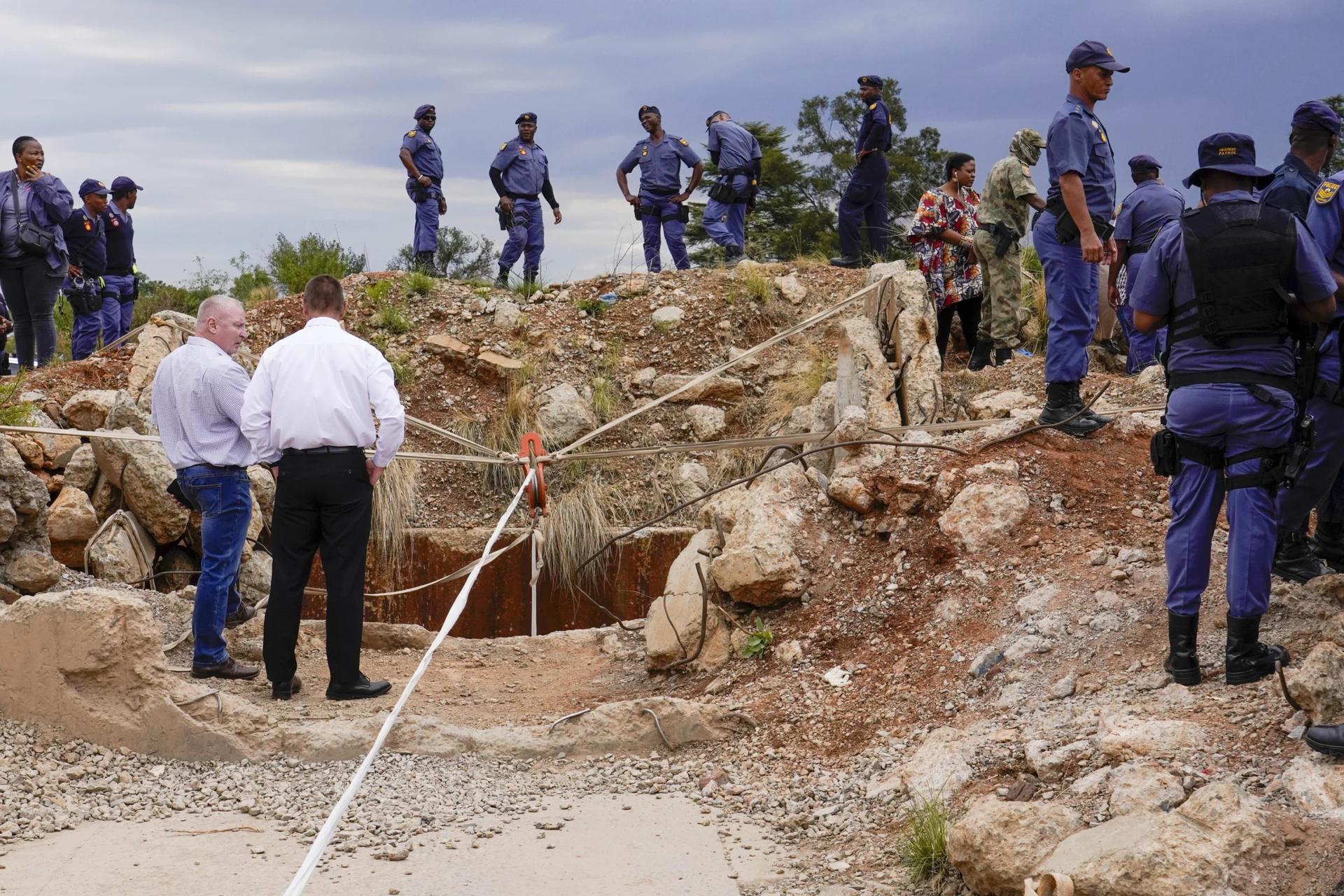YAOUNDÉ, Cameroon – A South African bishop has described in detail what he saw and heard as the bodies were being taken from an abandoned gold mine in Stilfontein, South Africa.
“We saw bodies of dead human beings lifted up; some beyond recognition and even 100 meters away, we could smell the stench of death that surrounded them, “said Bishop Victor Phalana, acting chairman of the South African Council of Churches.
“Our hearts bled as many of the rescued were barely holding onto life itself, some possibly as young as 13 years old – emerging from the mine shafts in a state of skin and bones,” Phalana said in a statement sent to Crux.
Hundreds of miners had been trapped for months in one of the country’s deepest mines as they worked illegally.
South African police said Wednesday they had ended a rescue operation at the abandoned gold mine with at least 78 miners confirmed dead and 246 others rescued. The police said there was no one else left in the shaft.
Illegal miners in South Africa are known as “zama zamas” or “those who take a chance” in Zulu.
For months, the “zama zamas” have been trapped underground after police launched an operation in November called “Vala Umgodi” – or “close the hole” – with one minister saying the operation was meant to “smoke” the miners out so that they could be arrested.
The police first claimed that the miners were refusing to come out voluntarily for fear of being arrested, but as the days and weeks went by, community activists and trade unions accused the authorities of denying the miners both food and water, and noted that the men had become emaciated and weak, and couldn’t therefore make the nearly two mile climb from the mineshaft to the surface.
The complaints led to a shift in strategy, and the government embarked on a rescue operation. As of Jan. 19, rescuers said all those trapped underground – living or dead – had been brought to the surface, with the exception of Shaft 10 where access has been impossible.
The South African Council of Churches that includes the Catholic Bishops’ Conference of Southern Africa has welcomed the development saying that “the speed of this life-saving operation has partially lifted the dark cloud that had settled over Stilfontein since October 2024.”
The statement signed by its President and Bishop of Klerksdorf in South Africa expressed gratitude to civil society organizations and humanitarian partners “who have been tireless in providing relief and support to the miners and their families in the last months.”
“Their efforts – especially the legal battle – ensured that the rescue and retrieval operations have finally been undertaken. The rescue operations were slow and deliberate, with each extraction taking up to 60 minutes, and only a limited number of miners and bodies brought to the surface with each lift,” Phalana said.
The bishop said it was a great relief that during the efforts to bring all those who are underground to the surface, there were no other lives lost in that process.
“We hope that the deceased who were retrieved are in a state in which they can be identified for respectful burial, and for the closure that their families need. This must be our focus right now,” he said.
“A huge debt of gratitude is owed to the rescue teams who, in a matter of days, have changed the narrative on the Stilfontein crisis and saved hundreds of lives. Their work will forever be remembered,” Phalana said.
The bishop called for accountability, wondering how such a tragedy could still be the South African story in 2025.
“This account must investigate the genesis of these mining operations, who are the criminal kingpins who benefit from them, what impact these operations have on local communities especially on Gender Based Violence and sexual abuse, what is the responsibility of the mine owners who leave these mines in the conditions that allow such activities to take place, and what has been the response of government both in public statements and actions that contributed to this current outcomes,” the bishop said.
He noted that what had happened remains a blemish on South African society and called for introspection “in order to reach an understanding of what has happened and why.”
“Some of the surviving miners have spoken of unthinkable living conditions that left them with no other option but to turn to cannibalism as a means of survival. Has our sense of humanity as a people been so deeply eroded by the traumas of our conflicted past, that we would rather deny illegal miners the right to an arrest, than to respond to their pleas for help and requests for food and water?” Phalana continued.
“We firmly believe that it could have been possible to respond to the challenges posed by this reality, without losing so much life. One of the most sacred tasks of any government, especially one like ours – born from the ruins of Apartheid and built on the values of our Constitution – is to protect and preserve life. As a people, we are called by God to protect and respect life. We are commanded to love one another as God has loved us,” he said.
“There is no debating it, in this context this has been a monumental failure. The rhetoric and the initial responses of the government – rather than protecting and preserving life – failed hundreds of lives,” the bishop added.
He said the urgency of protecting life requires that ways to access shaft 10 must be found so that the retrieval operation would indeed be completed. It would be in the words of the bishop, “a demonstration of this respect of life and love of all mankind.”














